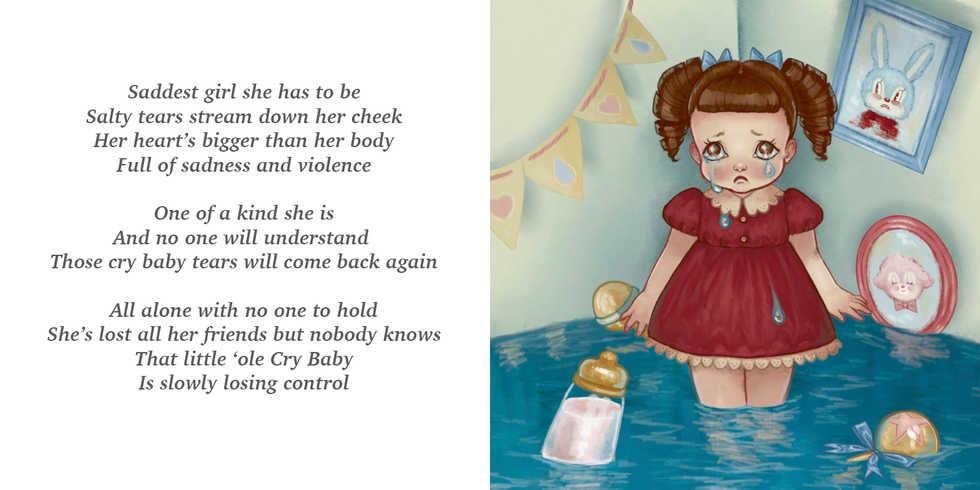A few days ago, my friends and I went to see Melanie Martinez in concert as she makes her way across the country for her “Cry Baby” tour. Because I live in Smallville, USA, I have very rarely had the opportunity to attend a concert that actually meant anything to me. (And no, I don’t count the country concerts held at our county fair each year.) So when a friend informed me that Melanie would be performing only a mere six hours away, I was ecstatic -- it would be the first time in my life that I could actually attend a concert and sing along to every single song. I shared this news with most of my family and friends in my excitement, but regardless of who I told, I was mostly met with a similar response:
Who the heck is Melanie Martinez?
It’s understandable that her name might not turn heads at first. Melanie rocks starkly contrasting split-dyed hair, frilly pastel clothes, and bases all her music around kiddy themes. Don’t be fooled by the childish aesthetic or her doll-like image, though. It’s true that she is a bit of a niche artist, but the themes of growing up and shedding stereotypes in her songs will likely resonate with a large audience.
Many people who do know of Melanie Martinez know her from “The Voice." She auditioned with Britney Spears’ “Toxic” in 2012, turning three chairs and making her way into the top six. Although she was eliminated from the show in week five, she has since released her debut album, “Cry Baby," and is already on her second tour.
In a time where many people complain that all pop music is the same, Martinez’s album intentionally defies classification and breaks outside of the box. “Cry Baby” tells the story of a little girl facing very adult situations as she navigates through life on a search for self-acceptance. Although Cry Baby herself is a persona crafted for the album, the struggles she faces reflect those of the 20-year-old Martinez. On top of the album’s eclectic music, the album is further brought to life through music videos and even a storybook packaged with the special-edition version of the CD.
The story of “Cry Baby” is unapologetically dark. The titular character is a caricature for all girls who have ever grown up in a world that tries to define them by stereotypes. Cry Baby does not fit the mold of the ideal daughter and deals with being ostracized and rejection because of it. The lyrics of “Dollhouse” paint a picture of a seemingly perfect family that is actually twisted and filled with problems under the surface: “No one ever listens, this wallpaper glistens/ Don't let them see what goes down in the kitchen.” In “Mrs. Potato Head," the infamous children’s toy serves as a metaphor for women who feel they must turn to plastic surgery in order to be deemed beautiful by society. The lyrics further illustrate society’s obsession with female beauty: “It's such a waste/ When little girls grow into their mother’s face/ But little girls are learning how to cut and paste/ And pucker up their lips until they suffocate.”
Although the content of her music is dark, Martinez is all about helping her fans learn to feel more comfortable in their own skin, just as writing her album helped her to do: “I hope people who feel insecure and uncomfortable with certain things—who feel like they can’t change—feel the transformation I went through. I just feel so much better now. It was therapy for me. I hope people feel more comfortable being a “cry baby.” It’s okay to be emotional. We’re human beings; that’s what it is."
“Cry Baby” is available on both iTunes and Spotify, so there is really no excuse not to go and download it ASAP. I’m thrilled that my first “real” concert experience was an overwhelmingly positive one, performed by someone who truly cares about her fans and serves as a positive role model for anyone who’s ever felt that they don’t quite fit in.














 man running in forestPhoto by
man running in forestPhoto by 









